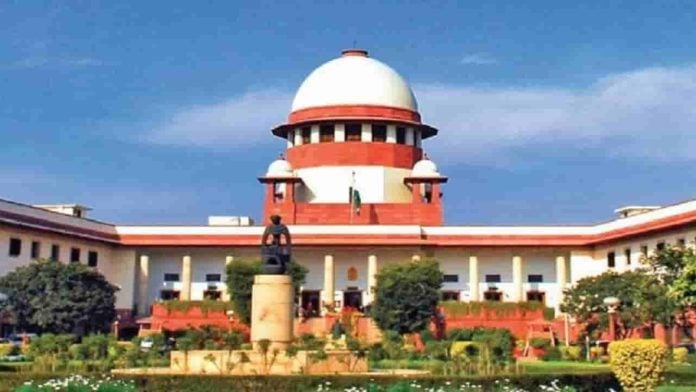The Supreme Court on Monday ruled that its 2014 verdict, which declared Section 6A of the Delhi Special Police Establishment Act 1946 as unconstitutional, will have retrospective effect.
As per the Apex Court, Section 6A of the DPSE Act, which mandated the Central Bureau of Investigation (CBI) to obtain prior sanction to investigate corruption cases against an officer of the rank of joint secretary and above, would not be held in force from the date of its insertion.
The top court of the country had struck down the provision as unconstitutional in 2014 in the case Subramanian Swamy vs Union of India.
The Constitution Bench of Justice Sanjay Kishan Kaul, Justice Sanjiv Khanna, Justice A.S. Oka, Justice Vikram Nath and Justice J.K. Maheshwari on Monday considered three questions:
i) whether Section 6A of the DSPE Act was part of the procedure, or introduced a conviction.
ii) whether Article 21 of the Constitution would have any bearing or relevance in the context of declaration of Section 6A of the DSPE Act as unconstitutional.
iii) whether the declaration of Section 6A of the DSPE Act as unconstitutional and validative of Article 14 of the Constitution would have a retrospective effect or would apply prospectively from the date of its declaration as unconstitutional.
Orally pronouncing the verdict on behalf of the Constitution Bench, Justice Nath said that Section 6A of the DSPE Act was part of the procedure only in the form of protection to a senior government official in service and did not constitute any new offence or sentence.
He further said that Article 20(1) of the Constitution had no applicability either to the validity or invalidity of Section 6A of the DSPE Act.
As per the Apex Court, the declaration made by the Constitution Bench in the case of Subramanian Swamy would have retrospective operation. It held that Section 6A of the DSPE Act would not be enforced from September 11, 2003, the date of its insertion.
The Constitution Bench noted that it had earlier indicated in the verdict that it was not dealing with the other issues and arguments and secondly, it had not decided the appeals on rest and the matter would now be heard by the respective regular Benches.
Earlier in November last year, the Apex Court had reserved its judgement after hearing arguments over the pivotal issue – whether a 2014 judgement striking down Section 6A(1) of the Delhi Police Special Establishment Act, 1946, which mandated Central government sanction for investigations involving certain government officials, would retrospectively apply to pending cases.
During last year’s hearing, the contours of Section 6A(1) of the Delhi Police Special Establishment Act, 1946 were discussed at length, especially in the context of the protections safeguarded under Article 20 of the Indian Constitution.
This clause bars the State from punishing an individual for an act which is not an offence at the time of its commission, or imposing a greater punishment than what was provided in the law when the crime was committed.
While Solicitor General for India Tushar Mehta argued that Article 20 did not apply to procedural provisions, citing a previous Supreme Court ruling, Senior Advocate Arvind Datar contended that Section 6A should offer immunity not just from conviction but also from investigation and that such procedural safeguards formed a part of Article 20(1).
Appearing for CBI, Additional Solicitor-General SV Raju had discussed the potential consequences of holding Section 6A to have prospective, rather than retrospective application.
(Case title: CBI vs RR Kishore)


